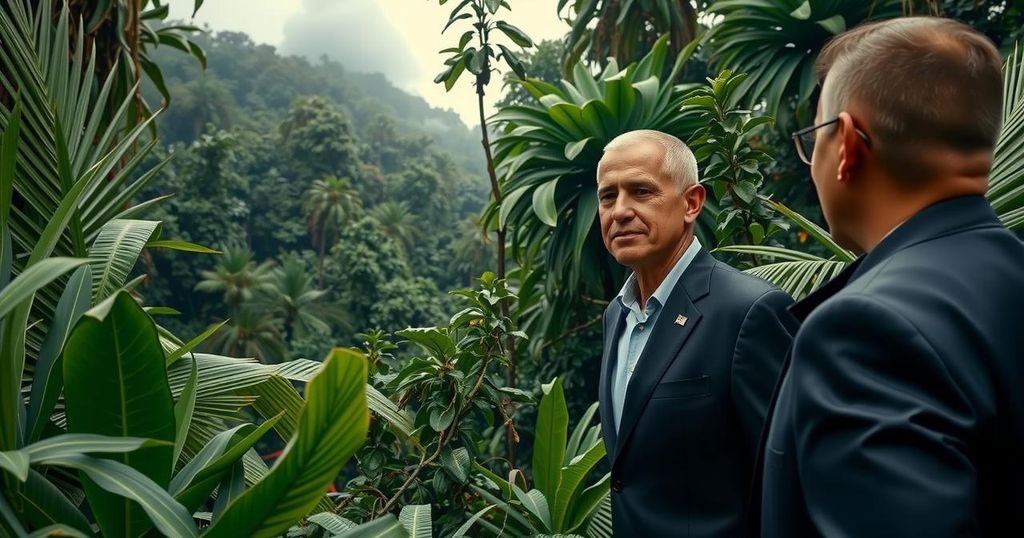On November 17, 2024, President Joe Biden became the first sitting U.S. president to visit the Amazon rainforest, addressing deforestation concerns and pledging increased funding. His visit highlights a commitment to environmental preservation amid threats from the incoming Trump administration, which opposes climate change initiatives. While Brazil has seen a notable decline in deforestation, ongoing challenges and political transitions underscore the urgency of protecting this vital ecological resource.
On November 17, 2024, President Joe Biden made history by becoming the first sitting United States president to visit the Amazon rainforest, touring significant areas impacted by climate change and rainforest degradation. Accompanied by climate experts, he conducted an aerial survey of the Amazon River and addressed plans for increased funding to combat deforestation. Washington committed to a $500 million contribution to the Amazon Fund, establishing a more favorable international cooperation framework. President Biden’s visit comes amidst rising concerns over anti-environmental policies under the incoming Trump administration, which threatens to reverse climate change initiatives. In recent years, Brazil has seen a notable decline in forest loss, with a reported 30.6% decrease in deforestation compared to the previous year. However, there remain considerable challenges due to rampant development and environmental policies that may not prioritize conservation. Biden’s engagement with local leaders and his administration’s announced efforts underscore a renewed commitment to preserving the Amazon and addressing the ongoing climate crisis. Furthermore, his visit coincides with significant socio-environmental shifts in Brazil, particularly under President Luiz Inácio Lula da Silva’s administration, which aims for zero deforestation by 2030. In light of these developments, the effects of history loom large within the current environmental landscape. Former President Theodore Roosevelt previously explored the Amazon in 1912, but Biden’s recent tour underscores a modern political recognition of the importance of this pivotal region for both biodiversity and global climate regulation. As Biden heads to global climate discussions in Rio de Janeiro, his actions signal a potential resurgence of U.S. leadership in environmental stewardship against the backdrop of shifting political currents.
The Amazon rainforest, often referred to as the “lungs of the Earth,” plays a critical role in global ecology and carbon regulation, storing vast amounts of carbon dioxide. The region is home to around 10% of Earth’s biodiversity and essential to the livelihoods of Indigenous communities. In recent years, deforestation rates have fluctuated significantly due to political leadership in Brazil, particularly under Jair Bolsonaro, whose policies favored agribusiness and weakened environmental protections. Following Lula’s return to power, there is a renewed commitment to combating deforestation, yet challenges remain due to potential future policy shifts under the incoming Trump administration.
President Biden’s visit to the Amazon marks a significant moment for U.S. engagement with global environmental issues, particularly in light of declining deforestation rates in Brazil and rising climate change concerns. His administration’s commitment to substantial funding for conservation efforts demonstrates a proactive approach to climate stewardship. However, the potential reversal of such commitments under the incoming Trump administration highlights the fragility of environmental progress. Ongoing dialogue about forest preservation and climate action must remain vigorous in the face of political changes.
Original Source: apnews.com







